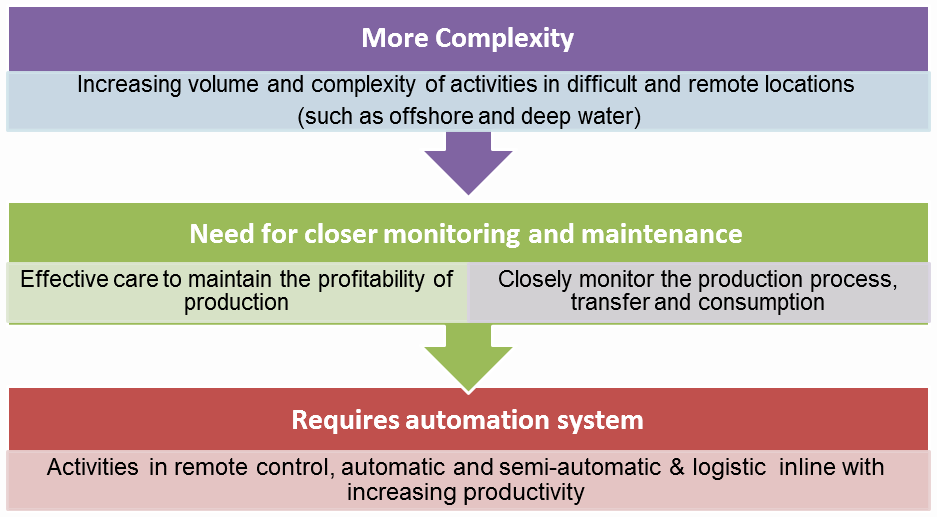By harnessing these technologies and their application in order to make decisions and take actions in a proper manner in proper time, companies can improve the productivity of their assets and prevent environmental accidents to increase the safety and health in their plants.
Many oil and gas companies, regardless of their location, faces to some issues that make their efforts to achieve sustainable productivity growth, complicate. We believe that the implementation of automation systems can play an important role in addressing the challenges in the oil and gas industry.
Increasing volume and complexity of activities in difficult and remote locations (such as polar regions, offshore and deep water), make it essential to make remote control, automatic and semi-automatic and logistic in line with productivity. These companies require effective maintenance schedules to maintain the profitability of production.

Limit of zero for injuries, environmental, health and safety make it essential also to presence of automation system to closely monitor the production process, transmission and consumption.
Recent experiences in oil and gas industry show that, such events can threaten not only be profitable but will put the operator in danger.
Now automatic production equipment, condition monitoring and predictive systems are the main requirements for preventing or reducing the occurrence of catastrophic events in the operation of remote and geographically dispersed environments.
Developments in the oil and gas industry require increasing efforts towards coding many common analysis and decision support processes and if possible implementation of them in the automation system.
Challenges
Implementation of automation system comes with its own challenges. Today, an intelligent oil field contain components, equipment and systems, digitally wired. An offshore production platform may have more than a few thousands data that some of them is not necessary. Better business decisions and operational data into the floods, require new capabilities carefully designed to incorporate, analyze and present the data and the tools to support decision making.

Oil and gas industry leader now expand their use of analytical models for predicting failures in major equipment. downstream is possible. This next phase also includes the use of process simulation to test failure scenarios to analyze the outcomes of the platform in case of engineers and operators malfunctions.
Clearly we can say that the competition in order to increase the use of automation in oil and gas production is essential. Companies that successfully use sensors, big data analysis and use of new technologies, to meet the challenges facing the industry will be in a good position.
FASBA Services
Engineering Services
FASBA company using the experience of its staff in the engineering and design services in the fields of oil and gas automation systems, able to provide the following services:.